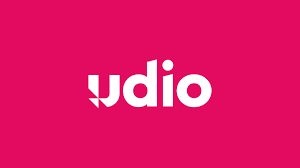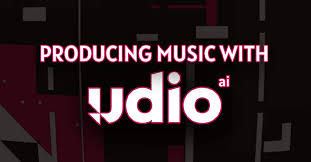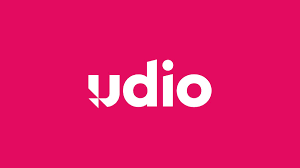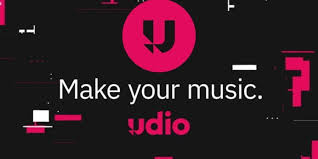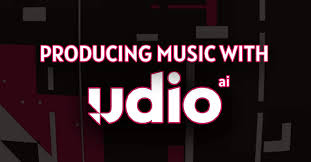As AI-generated music becomes more mainstream, creators and businesses are asking a critical question: Can I use Udio commercially?
Udio is one of the most advanced AI music platforms out there—capable of generating high-quality, vocal-driven songs in minutes. But if you're planning to use these songs for YouTube monetization, podcast intros, brand campaigns, or even Spotify releases, you need a clear understanding of what’s legally allowed under Udio’s terms of service.
This article breaks down everything you need to know about using Udio commercially in 2025—including licensing rules, real-world use cases, what’s allowed on each plan, and how to avoid copyright issues. Whether you're a music creator, entrepreneur, or content producer, this is essential knowledge.
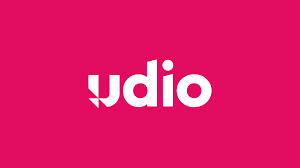
Can I Use Udio Commercially? (Short Answer)
Yes, but only if you are a paid subscriber.
Udio allows commercial use of the music generated on its platform, but only under its Pro (paid) plan. If you're using Udio on a free account, you’re restricted to personal, non-commercial use only.
“Users on paid plans retain full rights to use their generated songs commercially.”
— Udio Terms of Use (2025)
What Does Commercial Use of Udio Mean?
Commercial use includes any scenario where you’re monetizing or distributing your Udio-generated content in a way that creates income or brand value, such as:
Uploading to Spotify, Apple Music, or YouTube Music
Using as intro/outro in monetized YouTube videos or podcasts
Selling Udio songs as digital products
Syncing Udio music in ads, films, or games
Using music in brand campaigns, corporate videos, or websites
If your usage involves money, customers, advertising, or public distribution—you need a commercial license, which Udio only grants under its Pro plan.
Udio Free Plan: Personal Use Only
If you're using Udio for free, you're limited to personal use, which includes:
Sharing songs on social media (non-monetized)
Listening privately or with friends
Using music as demos or rough drafts
Learning how AI music works
Free plan users cannot upload songs to Spotify, use them in paid ads, or monetize videos using Udio tracks—even if it’s your voice or lyrics.
Udio Pro Plan: Full Commercial Use
When you subscribe to Udio Pro, you gain the right to commercially use everything you generate, including:
Music, lyrics, and vocals
Full-length songs and extensions
Audio downloaded in MP3 and WAV formats
You’re essentially purchasing a royalty-free commercial license to all the songs you generate, which means:
No attribution required
No additional fees or licensing
No limits on distribution (as long as you own the account)
Udio doesn’t claim ownership of the songs you create—they’re yours to use, monetize, remix, or release.
Who Owns Udio-Generated Music?
Udio uses a model similar to other AI music platforms like Suno or SOUNDRAW: the user retains rights to the output.
“Users have a royalty-free, perpetual, and worldwide license to use their generated content.”
— Udio Support (2025)
However, ownership is still a gray area in AI-generated music. Because Udio creates content using generative algorithms, and not human composition, copyright may not always apply in the traditional sense. Still, for practical purposes, you can treat your Udio tracks as if you own them—especially under a commercial license.
Real-World Examples: How Creators Use Udio Commercially
1. Independent Music Releases
Musicians are using Udio to release singles on platforms like Spotify and Bandcamp, either as solo acts or paired with human vocals.
2. Podcast Production
Podcasters use Udio songs for intro and outro music, commercial breaks, or ambient soundscapes—with full commercial rights under the Pro plan.
3. YouTube Content
Creators pair Udio music with animations, skits, or AI-generated visuals for monetized YouTube videos—especially in genres like lofi, electronic, or fantasy soundtracks.
4. Indie Game Development
Game developers use Udio’s Pro plan to generate background scores, saving on licensing costs compared to buying stock music.
Udio’s Terms of Service on Commercial Use
Udio's official Terms (as of mid-2025) outline these key points:
Free Plan: Personal use only. No resale, no monetization.
Pro Plan: Commercial use allowed. You retain the license to publish and profit.
No resale of Udio as a service: You can’t offer song generation as a service using Udio’s API or front-end.
Always review Udio’s official terms before launching a commercial project.
Can You Sell Udio Songs?
Yes—but only under the Pro license. You can sell Udio songs:
As digital tracks (on iTunes, Bandcamp, etc.)
As part of a course, product, or bundle
Through sync libraries (if they allow AI music)
On marketplaces like BeatStars or SoundBetter (check terms)
Just ensure you’re not falsely claiming human authorship, and that your use aligns with marketplace rules.
Are There Any Commercial Restrictions on Udio?
Here’s what you can’t do, even under the Pro plan:
Claim human authorship falsely on streaming platforms
Sell Udio's underlying model, code, or interface
Use Udio content in illegal, hateful, or misleading materials
Generate content that infringes on others’ intellectual property (e.g., copying famous lyrics or voices)
When in doubt, always use original prompts and avoid referencing real-world copyrighted material.
Best Practices for Using Udio Commercially
Upgrade to Pro before monetizing:
Don’t risk takedowns—subscribe to unlock full rights.Save and document your generations:
Keep records of when and how your song was created for future proof of license.Avoid celebrity name prompts:
Don’t use terms like “Drake-style voice” or “Taylor Swift lyrics”—these may trigger copyright flags.Layer with human vocals or instruments:
Udio songs sound great as-is, but you can remix them for more authenticity and uniqueness.Read marketplace rules:
Some platforms still don’t accept AI music. Always read submission guidelines before uploading Udio tracks for sale.
Conclusion: Udio’s Commercial Use Is Clear—If You’re on the Right Plan
So, can you use Udio commercially? The answer is yes—if you’re a paying user. Udio makes it easy and legal to use AI-generated music in professional, creative, and monetized projects with no ongoing royalties.
For creators looking to level up their production workflow, Udio Pro offers a flexible, powerful way to legally integrate AI music into any commercial format—from TikTok videos to mobile games to film soundtracks.
But don’t assume your free tracks are safe to use in business. If you’re serious about creating music with long-term value, upgrading to Udio Pro is the smart move.
FAQs
Q1: Can I upload Udio songs to Spotify?
Yes, but only if you’re on a paid Pro plan. Free users cannot legally distribute Udio music commercially.
Q2: Can I use Udio music in YouTube videos?
Yes—Pro users can monetize videos with Udio songs. Free users can only use them for personal, non-monetized uploads.
Q3: Does Udio provide a license document?
Not currently, but your paid subscription grants you a royalty-free, commercial-use license. Keep records of your generation dates.
Q4: Can I use Udio for client work?
Yes. If you’re generating music for clients (e.g., ads, videos), you need a Pro account. You may also need to transfer usage rights contractually.
Q5: What if I cancel Udio Pro? Do I lose rights?
No. Any music you generate while subscribed to Pro remains covered under the commercial license—even if you cancel later.
Learn more about AI MUSIC


